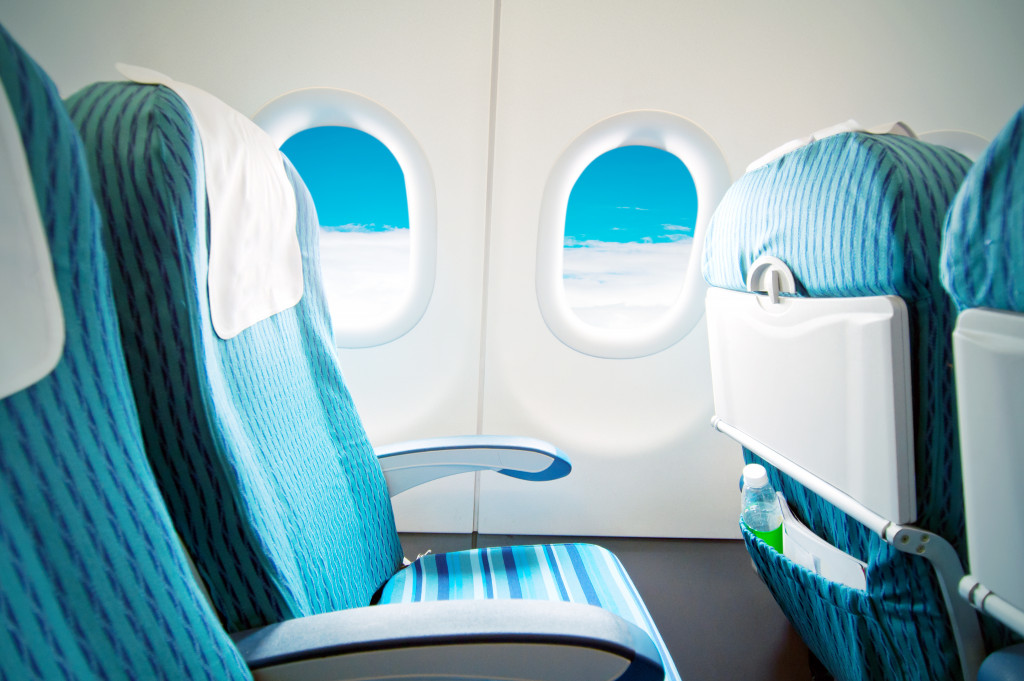Traveling is fun. You get to see new sights, meet new friends, gain new experiences, learn new skills, and create new memories.
However, there is one caveat to going to places outside your comfort zone: you are met with dangers that you may not have encountered before. Public transportation, hotel rooms, restaurants, and tourist destinations are all teeming with germs, most of which will cause an illness.
Researchers from Europe found that the plastic trays used at airport checkpoints everywhere in the world are breeding grounds for a variety of germs, including the viruses that cause the common cold. These surfaces are touched by multiple people, hailing from different places. They often do not get disinfected which means that the germs remain there and multiply for a really long time.
Knowing this information makes traveling sound less appealing. However, there are things that can be done in order to avoid collecting all the bacteria and viruses you encounter on your trip.
Keep Alcohol-Based Sanitizers with You at All Times
There are times when you would not be able to avoid touching surfaces. Although an autoslide door opener is a germaphobe’s friend, not every place would have it. You will have to push doors to restaurants and cafes, taxi cabs, etc.
For these instances, it is important to have an alcohol-based sanitizer in your bag.
When outdoors, your hands can pick up germs from everything you touch, the act of touching your face transfers these germs onto your eyes, nose, and mouth — cavities where pathogens can enter your body and cause an infection.
Use the alcohol-based sanitizer as often as possible. The Centers for Disease Control and Prevention says that it should have at least 60% alcohol content to be most effective against many types of germs, including the common cold.

Do Not Be Ashamed to Wipe
Next to an alcohol-based sanitizer, disinfectant wipes are the most important guard against germs. Use it to wipe armrests, doorknobs, light switches, and other fixtures that are exposed to multiple people all day.
On the plane, the seatback trays are one of the dirtiest surfaces. Although in between flights, the plane gets thoroughly cleaned and sanitized, the seatback trays are often neglected. Wiping it before using it to set your food down will ensure that you are not ingesting pathogens with your in-flight meal.
Once you get to the hotel, it is important to go around with your disinfectant wipes. The remote controls are not being cleaned regularly which means that germs are being passed around from guest-to-guest. Other fixtures such as drawer handles and flush levers might also be harboring germs, so it is best to give them a wipe before use.
Wear a Mask
The importance of wearing a mask was emphasized by the recent pandemic. In the United States and in many countries around the world, mask-wearing has only become something done to prevent the spread of COVID-19. However, as studies have previously shown, it is also effective at blocking a lot of germs in the air, including the viruses that cause the flu.
In East Asia, wearing a mask is normal when traveling. They know the immediate risk of spending hours in an enclosed space with multiple people and where the air is circulated. Breathing alone can spread aerosols that may be contaminated with bacteria and germs. If inhaled, these aerosols will cause an infection.
Masks filter the air that you inhale and exhale. The most effective is the N95 which, as the name suggests, removes 95% of airborne particles. The surgical mask is nearly as good. However, a regular cotton mask blocks bigger droplets that may contain germs that you expel or somebody ejects into the air by talking or coughing.
The world is a very dirty place and traveling exposes you to more germs that may make you ill. While these tips are effective, nothing is 100% safe. Your first line of defense should be to build a strong immune system through regular exercise, a balanced diet, and sleeping eight hours a day.

